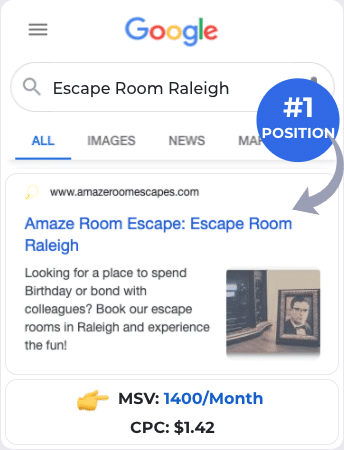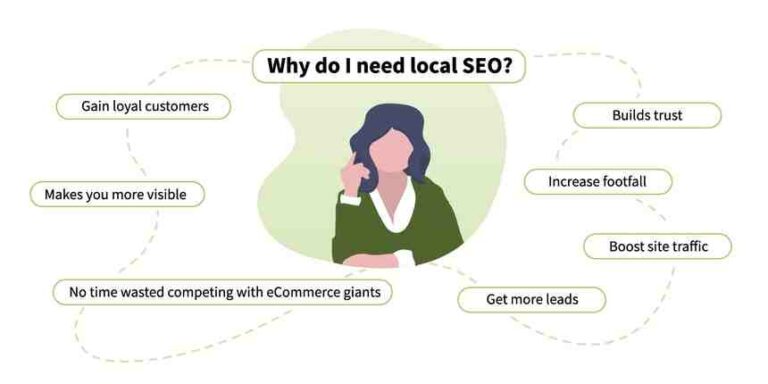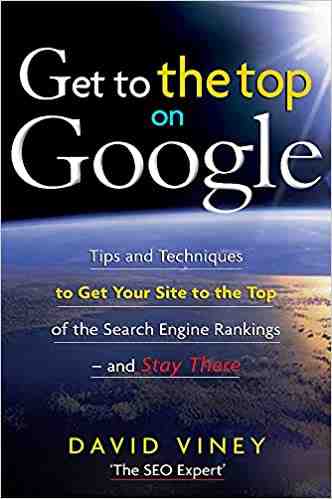Local SEO Strategies For Plumbers And Other Trades
Plumbers and other tradesmen are essential in modern society, but they face a major barrier to entering new markets: taking customers away from the competition.
Many homeowners have established relationships with plumbers and contractors, making it difficult to penetrate certain markets.
Fortunately, plumbers have ways to stand out in a new market, particularly when they’re bringing in new homeowners or performing emergency services where other plumbers aren’t available.
The best sources to take advantage of these opportunities are Google Search, and you can improve your visibility there by using local SEO.
In this guide, you’ll find tips and tactics to help plumbers, electricians, contractors, and other tradespeople and businesses enter a new market, build a customer base, and expand your brand.
Off-Site SEO Essentials

One of the biggest sources of traffic for all businesses comes from “near me” searches, particularly on mobile phones.
By optimizing your Google Business Profile listing and third-party directory listings, you can increase your business exposure and increase the number of incoming calls to your business.
Google Business Profile Optimization
Your Google Business Profile shows up in local search pack results and shows up on Google Maps searches.
As a result, optimizing your Google Business Profile listing allows customers to call your business, drive to your location, or visit your website with just one click.
Google screenshot, July 2022
To optimize your Google Business Profile listing properly, follow these tips and dig deeper with this guide.
Local Directories
Next, you’ll want to optimize your brand’s business profile on other third-party sites that customers frequently use to find plumbers, including:
While some sites like Yelp have declined over the years, these directory sites are still important sources of business referrals.
Some sites provide ranked lists of different businesses based on customer reviews, which can provide social proof and trust for your business (if you get enough positive reviews).
Moz offers tools for creating local citations, or you can manually claim each business yourself, following the tips above to optimize your social media presence.
Build A Social Media Presence
While engaging with customers on social media isn’t critical to many contractors or trades, sources like Facebook can be valuable for customers looking for special announcements, business hours, and reviews.
Create a social media page for Facebook and LinkedIn, providing high-resolution photos and clear NAP information for easy contact.
Managing Reviews
Finally, you will need to manage reviews on external third-party websites to build customer trust.
In general, you should review each third-party site at least once a month, if not more, to see what people are saying about your business and how you can improve.
Think of reviews as personal referrals, which are already a huge source of income for your business.
According to a survey, 84% of service business and merchant customers said that reviews are “important” or “very important” in their decision-making process.
Follow these tips to manage online reviews for your plumbing business:
Don’t worry too much about negative reviews, as most customers will be equally dismayed by overtly harsh reviews.
However, responding to negative reviews with a positive service commitment could build more customer trust over time.
It also helps you show off your customer service skills.
On-Page SEO Essentials
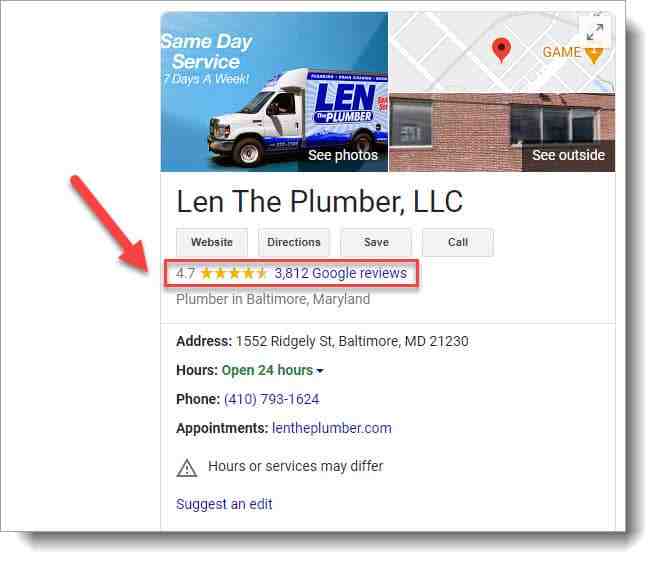
Now that you’ve optimized your business listing on strategic third-party websites, it’s time to optimize your website for local SEO results.
Local Keyword Research
To get started, you’ll need to do some local keyword research to see which terms drive the most qualified traffic to your website.
Sign up for a free Google Ads account and use the Keyword Planner tool to find keywords in your area.
For example, if you operate in Houston, you could use “houston plumbers” as your initial keyword and filter your search by Houston, Texas to discover more ideas:
Screenshot of Google Ads, July 2022
Based on this list, “plumber houston tx” and “houston plumbing services” have less competition and can easily be won in local search results.
You can also filter this list by “top of page bid” and see the highest bids for the most commercially relevant keywords.
You can also take a competitor from your initial keyword list and enter their URL to see what keywords they rank for.
You can add a semantic filter to fine-tune your results for keywords strictly related to plumbing.
Screenshot of Google Ads, July 2022
Building a list of these keywords will be critical to optimizing meta tags on top-level pages and developing content ideas.
Meta Tag Optimization
Now that we have our list of initial keywords, we need to apply them to our web pages.
The first area will be your home page, where you can customize the title tag to include your brand name and an initial keyword, such as “Matt’s Plumbing Company | Houston Plumbers.”
You’ll need to optimize the metadata on each page with relevant keyword data so that the pages are more likely to rank for search results.
Local Schema
While local keyword research will certainly help Google or Bing index your website for local search results, nothing is guaranteed.
To help search engines index your website correctly, use schema markup on web pages to tag and index them correctly.
While schema markup can be tricky, Google’s Structured Data Tool makes it easy.
Insert your URL and add the appropriate schema markup to ensure that Google correctly indexes each page of your website.
Some common schema marking data that will apply to your plumbing business includes:
Check out our Complete Guide to the Local Scheme for more helpful tips.
Mobile Responsiveness
Another great component of local search is mobile search.
Many local searches for your business will be done through smartphones, so you can’t ignore the importance of mobile devices.
Fortunately, most modern CMS options come with responsive web design.
However, to make sure your website runs smoothly on mobile devices, keep the following tips in mind:
Site Speed Optimization
Fortunately, by optimizing for mobile, you’ll also optimize for page speed.
To increase page speed, keep the following tips in mind:
You still need to identify page speed issues using Google’s Page Speed Insights for more useful information.
Creating Consistent NAP
As a final tip for this section, it’s crucial to make sure all contact information (name, address, phone number = NAP) and branding is consistent across all of your pages.
For example, inserting a click-to-call button and your address in the top corner of every page (or in the footer) will ensure customers can reach you when they’re ready.
Content Essentials
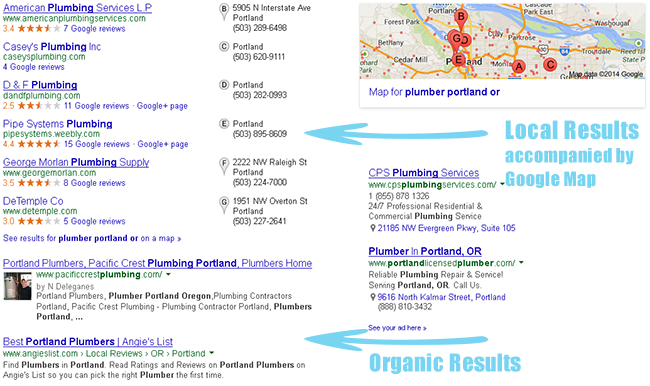
With your website in place and ready to go, it’s time to create landing pages for your major services and service regions.
Service Pages
Ideally, your UX should keep the navigation very simple, with your target keyword (such as “Houston Plumbers”) and all ancillary services such as child or service pages.
These pages may include services, such as:
All of these should be located on a general Plumbing Services top navigation page where users can explore different services, find out prices, repair details, etc.
Regional Pages
Another important consideration for plumbers and contractors is whether your business serves a large metropolitan area or multiple locations.
For example, if you provide plumbing services to most of New York City, you can create regional pages for Manhattan, Brooklyn, and Queens listing various services.
Also, if there is enough keyword volume to warrant those pages, you can create regional pages for New York neighborhoods, such as the Upper East Side, Upper West Side, and SoHo.
These pages may also rank for “near me” searches in those neighborhoods.
Creating A Blog
Finally, you might also consider starting a blog if you think it will give you an edge over the competition.
Blogging provides several benefits for local businesses, including plumbers, such as:
You can also consider sharing tutorial and DIY videos on platforms like YouTube, which link to your website.
Video content is highly shareable and easy to consume, giving your business much-needed exposure.
Link Building Strategies
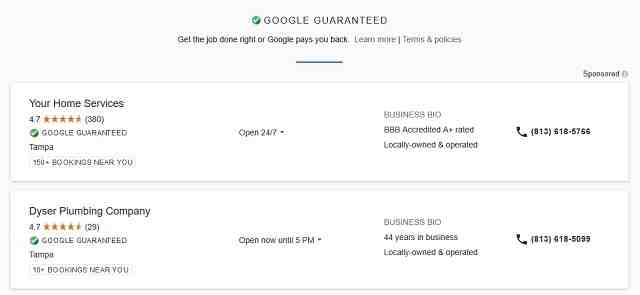
While we discussed ways to generate traffic from third party websites, link building can be an exceptionally useful tool in your arsenal to give your business an edge over the competition.
Link building, whether using rel=follow or nofollow links, drives qualified traffic to your site and customers to your business.
If you don’t have the money to spend on a tool like Ahrefs, here are some free local link building tips to help you drive traffic to your website:
These tips will help give your brand visibility, which, in turn, will attract more customers to your business over time.
Digital Advertising
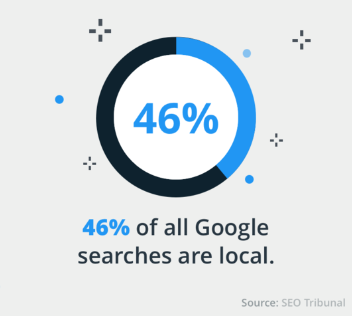
Online advertising can also be very effective if you want to generate quick exposure and calls to your company.
For example, advertising in Google Ads allows you to bid on the keywords you’re trying to rank for, so your website appears above the local search pack.
Screenshot of Google Ads, July 2022
While I suggest asking for help or taking a course to start advertising on Google, here are some helpful tips to help you promote your plumbing business on Google:
In addition, Facebook provides sophisticated audience research tools that allow you to advertise to customers based on demographic information, such as whether they own a home, are over a certain age, or own residential/commercial real estate.
Email Marketing
Finally, I want to mention email marketing as it can be a powerful tool for local businesses.
Plumbers can benefit from email marketing by sending reactivation emails that remind previous customers about your business, especially if you work with both residential and commercial residents.
You can send emails to advertise local promotions in your area, such as discounted inspections or preventative maintenance.
However, email marketing can be expensive, especially for a business that relies heavily on emergency repairs.
For this reason, email marketing isn’t really necessary for plumbers unless you actively create content, engage with the community, or run promotions.
Conclusion
SEO for merchants and their businesses involves many of the same strategies as other local businesses.
However, merchants require special consideration for their unique business model.
Some forms of marketing, such as social media and email marketing, may not be as effective as advertising or reputation management.
Hopefully, by following these tips, you’ll be able to establish a positive web presence for your business and start receiving more phone calls.
Featured Image: Cosro/Shutterstock
What makes good SEO?
The most important SEO tip: get external links. Ok, finally we come to the most important one: external links. External links are links from websites other than your own. Google relies heavily on external links to determine how good a post is.
What are the 5 important concepts of SEO? 5 must-know SEO concepts to follow in 2021
- Main Vitals of the Web. …
- Mobile first indexing. …
- Machine learning and automation. …
- TO EAT. …
- Knowledge gap, semantics and entities.
Which is key to SEO success?
1. Original and engaging stories always win. This is the first, second, third, fourth and fifth most important key for SEO. Posting stories that people feel compelled to share, link to, and write about is simply the most organic path to great SEO.
What are key factors in SEO?
Page speed has been cited as one of the top SEO ranking factors for years. Google wants to improve the user experience on the web, and fast loading web pages will do just that. Google announced a search engine algorithm update focused on mobile page speed that began affecting sites starting in July 2018.
What is the most important component of successful SEO?
The #1 Google Ranking Factor At WebTek, we say that the most important parts of SEO and the most important Google ranking factors are web page titles and header tags. Titles represent the main real estate element of any website: they are your best opportunity to tell Google exactly what your website or web page is about.
What makes great SEO?
Authoritative, quality content is the number one driver of your search engine rankings and there is no substitute for great content; this is especially true when doing SEO marketing. Quality content created specifically for your intended user increases site traffic, which improves your site’s authority and relevance.
What are keywords for SEO?
SEO keywords (also known as “keywords” or “keyphrases”) are terms added to online content to improve search engine rankings for those terms. Most keywords are discovered during the keyword research process and are chosen based on a combination of search volume, competition, and business intent.
What are examples of keywords? Keywords are the words and phrases that people type into search engines to find what they are looking for. For example, if you want to buy a new jacket, you can type something like “men’s leather jacket” into Google. Although that phrase consists of more than one word, it is still a keyword.
How do I choose keywords for SEO?
The best keywords for your SEO strategy will take into account relevance, authority, and volume. You want to find highly searched keywords that you can reasonably compete for based on: The level of competition you face. Its ability to produce content that exceeds in quality what is currently classified.
When choosing keywords for SEO What 3 things do you need to consider?
When doing your SEO keyword research, there are three factors you need to consider: individual keyword relevance, search volume, and user intent. This will help you answer the simple but imperative question of whether you want someone who types a particular phrase into Google to engage with your brand.
What is the local SEO checklist?
In 2022, the growing dominance of SERP features such as image carousels, maps, lists, knowledge panels, “People Also Ask” dropdowns, and various forms of local business cards means that ranking in Google is not what it is. it used to be. Your business must also earn these featured snippets. To do just that, you need local SEO.
What is local SEO strategy?
Local SEO is a search engine optimization (SEO) strategy that helps make your business more visible in local search results on Google. Any business that has a physical location or serves a geographic area can benefit from local SEO.
What is local search strategy? Local search marketing, often called local SEO (local search engine optimization), is a type of digital marketing service that businesses engage in to reach local markets by appearing in local results when their target customers they connect and look for things.
Why local SEO is important for SEO?
Local SEO allows you to put important information about your site online, such as your business address and phone number. Additionally, you can highlight and promote the type of products or services you offer on your website using SEO techniques.
Why local ranking is important?
Local SEO supports your website’s ability to rank within local search territory. There is often a difference in audiences between the two. Local SEO often affects search engines looking for a product or service in their immediate geographic area.
Who benefits from local SEO & Why?
With local SEO, your business gains more visibility as it is found by the right people who are interested in your product at the right time. When your business is more visible, this means more profits, sales and even relevance.
What is the difference between SEO and local SEO?
Here is the difference. While traditional SEO focuses on improving your site’s visibility on a national or global scale, local SEO allows you to capture local search territory to connect with search engines in your area. SEO and local SEO use many of the same strategies.
What is the difference between organic and local SEO?
Based on these definitions, we can establish the fundamental difference between local and organic SEO: local SEO is about optimizing placements, while organic SEO is about optimizing content. They both have to do with optimizing your website and online presence for search engines.
